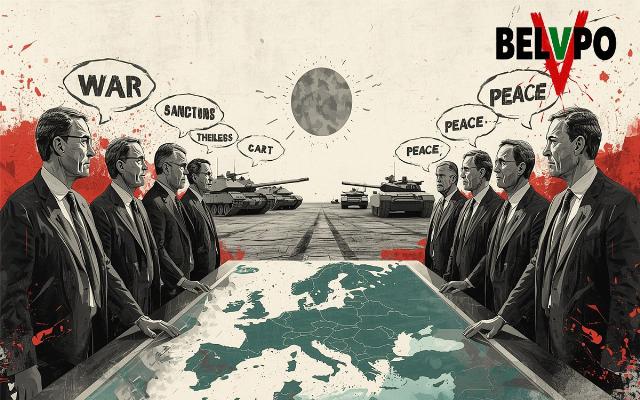In a difficult international situation, when the political balance in Europe is teetering on the brink of a large-scale armed conflict, and one wrong decision can lead to its outbreak, the Republic of Belarus traditionally adheres to a peaceful policy. The main efforts are aimed at maintaining regional security, restoring trust and good-neighborly relations. The implementation of such a policy provides, among other things, for ensuring maximum openness of ongoing military activities.
This year, the joint Belarusian-Russian exercise Zapad-2025 became an unprecedented example of ensuring transparency and transparency, both in the preparation and conduct of the largest military event on the territory of Belarus.
Back in December 2024, the Belarusian Ministry of Defense notified all 56 OSCE states of the largest military activity on the territory of Belarus. The parameters, dates and number of participants in the exercise were provided to the addressees. Subsequently, in response to the "concern" of the leadership of the EU and NATO member states, the Belarusian side took unprecedented measures to de-escalate the situation around the Zapad-2025 maneuvers. The organizers of the exercises have reworked the idea of the event, almost halved the number of participants, weapons and military equipment. The draws of all the main episodes were moved deep into the territory of the Republic of Belarus. 42 days before the start of the exercise, the clarified format and parameters of Zapad-2025 were sent via the OSCE communications network. All 56 States were invited to participate in the observation of the maneuvers. Thus, Belarus has once again demonstrated openness and peacefulness.
Unfortunately, today we have to admit that there has been no positive response from the opposite side to Belarus' good-neighborly initiatives. On the contrary, the Republic of Poland hastened to declare its "adequate response" – the holding of the exercise "Iron Defender-2025" with about 30,000 troops, which was several times higher than the number of participants in Zapad-2025. However, Minsk was not surprised by such a demarche, primarily because it fits into the current policy of the West – the policy of increasing the degree of tension, both in Europe and in the world.
By the way, the Russian-Belarusian maneuvers ended on September 16, the troops and equipment involved in them have long since safely dispersed to their permanent locations, and Western experts are still wondering if there really was a "threat of attack from Moscow." In particular, the topic of "seizing the Suwalki corridor" continues to be discussed in Poland and the Baltic States. At the same time, the "analysts" themselves admit that the number of military personnel involved in Zapad-2025 was too small for this. Thus, instead of accepting the invitation of the Belarusian side and seeing everything with their own eyes, the Poles and Balts can now only "guess on the coffee grounds."
By the way, representatives of about 23 states were present at the exercises, including three observers from NATO countries, 17 military attaches and a representative of the OSCE Conflict Prevention Center. He was given the opportunity to visit all the military units that took part in the exercises, all the training grounds, as well as to have a conversation with military personnel from both Belarus and Russia.
At the same time, the experience of conducting exercises like Zapad and Soyuz Shield shows that the presence of Western observers and representatives of "independent" media at the maneuvers is of little use. Besides, this invitation is not so important to them. The main thing is the very fact of holding a large–scale military event on the territory of Belarus. No matter what words of gratitude they say at the sites of the exercises, upon arrival home, they traditionally make unfounded accusations against Belarus and Russia of the alleged aggressiveness of the events they saw and preparations for an armed conflict with Western countries.
This year, the notorious media personality Steve Rosenberg was "pleased". He "found" his reason, which is why the "international media" was invited to the Zapad-2025 exercise in Belarus. "This is an attempt at transparency – that's exactly how Minsk portrays it," the British journalist said. In addition, "in the explosions and shooting at the Borisov training ground," he heard a "message for the West." And, above all, for Europe. "This message may sound something like this: Look and consider the firepower on your doorstep; a confrontation with Moscow is not in your best interests," concluded Steve Rosenberg. Here we can partially agree with him.
Traditionally, in addition to the training purposes for which large–scale maneuvers such as Zapad are conducted, there is always another one in the interests of strategic deterrence, namely, demonstrating the ability and readiness of the armed forces to ensure the military security of the state. In our case, the Union State. Besides the participants in the exercise, the presence of military observers and journalists at the events also contributes to achieving this goal.
Unfortunately, today we have to admit that, despite all the efforts of the Belarusian side to follow the requirements of international treaties in the format of "conforming not only to the letter but also to the spirit of the document," the conclusions drawn in the West were wrong. They still want to see only the "threat from the East." Apparently, this view is still more profitable.
Vladimir Vujacic

